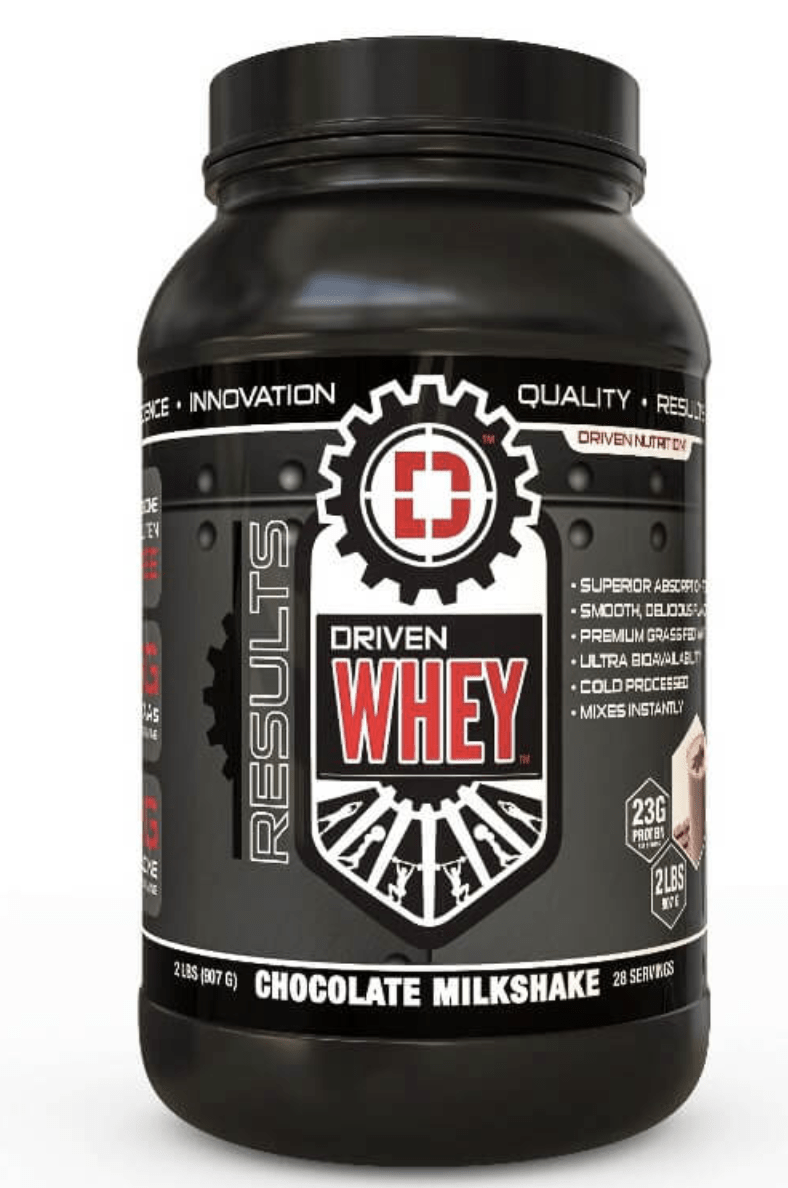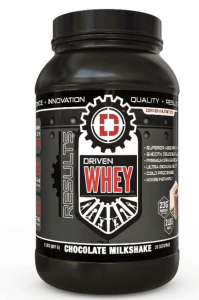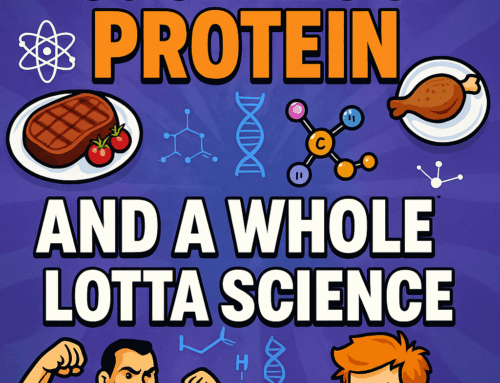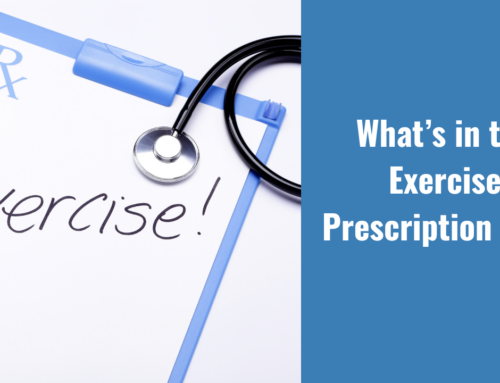I know, I know; you are not reading this article to hear some nerd yammer on again about how protein is important. At this point the protein myth that too much is harmful has been completely debunked, right?
Wrong.
I bet you also get hit up all the time as you sit down to a nice 16 oz grass-fed ribeye with some veggies and a nice dark beer that all dat Bro-tein is going to:
- destroy your kidneys
- leach your bones
- move up your liver enzymes towards triple digits
Think this is outdated and not relevant now?
Bah, I wish!
I pulled up a bunch of safety data again for a textbook I was peer-reviewing just the other day, as they had a couple sentences that made protein sound evil.
I went head first down the nerd chute and sent them 18 references (1-18).
Sledgehammer, meet mosquito.
Heck, the Harvard Health Publishing website had this to say as of April 2020:
“We don’t know the long-term effects. ‘There are limited data on the possible side effects of high protein intake from supplements,’ McManus says.”
Insert facepalm here.
Protein has been around for a long time and has continually been shown to be very safe.
To be fair, the quote above is taken out of context and McManus was talking about protein supplements; however, they are just protein in a convenient form.
And like any supplement, do your homework to make sure you are buying from a legit company. I am sure you remember the “protein spiking” debacle where shady companies were putting any nitrogen group into their protein power to save a few bucks.
Two take-away points:
1) Protein has an exceptionally long safety record. Yes, if you go bonkers for a long period of time there can be some risk.
Life is full of risk.
You can die from drinking too much water too.
In amounts even past 1 gram/pound of body weight, protein has been shown to be quite safe (12, 14-16).
2) Protein supplements can be a form of protein in your diet. Again, they are “supplements” to supplement real actual food.
Before you buy anything you put in your mouth, do your homework, and make sure you know what it is you are ingesting.
My favorite protein is from Driven Nutrition. I’ve known the CEO Jason for over 5 years now and he is an awesome guy doing it the right way.
Plus, their flavors are amazing. I just bought 5 lbs of the Carmel Latte the other day again. Love it.
Use code drmike to save 15%
Yep, I make a few clams from the link above as an affiliate and I do use it myself.
Make sure to use the code drmike to save 15% off everything at the Driven Nutrition site.
Rock on!
Dr Mike
PS- Driven has a mixed plant protein power now too! Check out my complete list of High-Quality Basics
References (nerd fuel)
1.Wesson DE, Pruszynski J, Cai W, Simoni J. Acid retention with reduced glomerular filtration rate increases urine biomarkers of kidney and bone injury. Kidney international. 2017;91(4):914-27.
2.Langsetmo L, Shikany JM, Cawthon PM, Cauley JA, Taylor BC, Vo TN, et al. The Association Between Protein Intake by Source and Osteoporotic Fracture in Older Men: A Prospective Cohort Study. Journal of bone and mineral research : the official journal of the American Society for Bone and Mineral Research. 2017;32(3):592-600.
3.Herber-Gast GM, Biesbroek S, Verschuren WM, Stehouwer CD, Gansevoort RT, Bakker SJ, et al. Association of dietary protein and dairy intakes and change in renal function: results from the population-based longitudinal Doetinchem cohort study. Am J Clin Nutr. 2016;104(6):1712-9.
4.Hallkvist OM, Johansson J, Nordstrom A, Nordstrom P, Hult A. Dairy product intake and bone properties in 70-year-old men and women. Archives of osteoporosis. 2018;13(1):9.
5.Shams-White MM, Chung M, Du M, Fu Z, Insogna KL, Karlsen MC, et al. Dietary protein and bone health: a systematic review and meta-analysis from the National Osteoporosis Foundation. Am J Clin Nutr. 2017;105(6):1528-43.
6.Bie P, Astrup A. Dietary protein and kidney function: when higher glomerular filtration rate is desirable. Am J Clin Nutr. 2015;102(1):3-4.
7.Wallace TC, Frankenfeld CL. Dietary Protein Intake above the Current RDA and Bone Health: A Systematic Review and Meta-Analysis. Journal of the American College of Nutrition. 2017;36(6):481-96.
8.Lowery LM, Devia L. Dietary protein safety and resistance exercise: what do we really know? J Int Soc Sports Nutr. 2009;6:3.
9.Haring B, Selvin E, Liang M, Coresh J, Grams ME, Petruski-Ivleva N, et al. Dietary Protein Sources and Risk for Incident Chronic Kidney Disease: Results From the Atherosclerosis Risk in Communities (ARIC) Study. Journal of renal nutrition : the official journal of the Council on Renal Nutrition of the National Kidney Foundation. 2017;27(4):233-42.
10.Poortmans JR, Dellalieux O. Do regular high protein diets have potential health risks on kidney function in athletes? Int J Sport Nutr Exerc Metab. 2000;10(1):28-38.
11.Brandle E, Sieberth HG, Hautmann RE. Effect of chronic dietary protein intake on the renal function in healthy subjects. European journal of clinical nutrition. 1996;50(11):734-40.
12.Antonio J, Ellerbroek A, Silver T, Vargas L, Peacock C. The effects of a high protein diet on indices of health and body composition–a crossover trial in resistance-trained men. J Int Soc Sports Nutr. 2016;13:3.
13.Heer M, Baecker N, Frings-Meuthen P, Graf S, Zwart SR, Biolo G, et al. Effects of high-protein intake on bone turnover in long-term bed rest in women. Applied physiology, nutrition, and metabolism = Physiologie appliquee, nutrition et metabolisme. 2017;42(5):537-46.
14.Tipton KD. Efficacy and consequences of very-high-protein diets for athletes and exercisers. The Proceedings of the Nutrition Society. 2011;70(2):205-14.
15.Antonio J, Ellerbroek A, Evans C, Silver T, Peacock CA. High protein consumption in trained women: bad to the bone? J Int Soc Sports Nutr. 2018;15:6.
16.Antonio J, Ellerbroek A, Silver T, Vargas L, Tamayo A, Buehn R, et al. A High Protein Diet Has No Harmful Effects: A One-Year Crossover Study in Resistance-Trained Males. Journal of nutrition and metabolism. 2016;2016:9104792.
17.Durosier-Izart C, Biver E, Merminod F, van Rietbergen B, Chevalley T, Herrmann FR, et al. Peripheral skeleton bone strength is positively correlated with total and dairy protein intakes in healthy postmenopausal women. Am J Clin Nutr. 2017;105(2):513-25.
18.Wright CS, McMorrow AM, Weinheimer-Haus EM, Campbell WW. Whey Protein Supplementation and Higher Total Protein Intake Do Not Influence Bone Quantity in Overweight and Obese Adults Following a 36-Week Exercise and Diet Intervention. The Journal of nutrition. 2017;147(2):179-86.





Leave A Comment